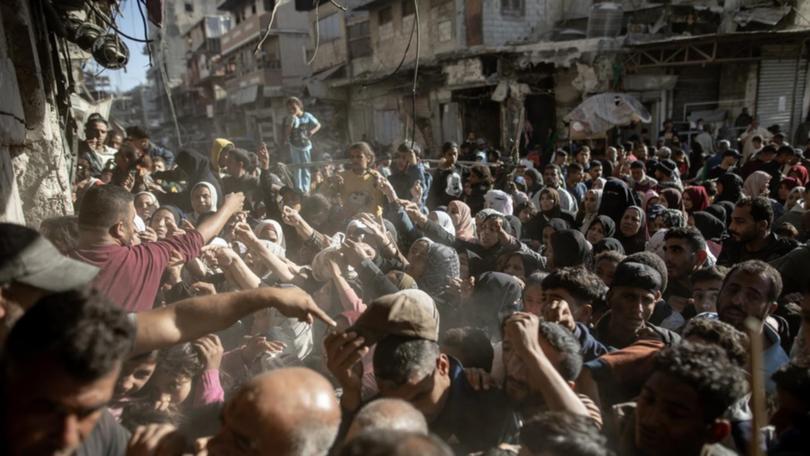Israel aid ban ‘a new way to kill children’ in Gaza representing a form of collective punishment, UNICEF says
UN agencies say the banning of its relief agency UNRWA could result in the development of famine across war-torn Gaza.

Israel’s decision to ban the UN relief agency UNRWA could result in the deaths of more children and represent a form of collective punishment for Gazans if fully implemented, UN agencies said.
A law passed by Israel on Monday to ban the UN Palestinian refugee agency — UN Relief and Works Agency for Palestine Refugees (UNRWA) — from operating inside Israel has raised concerns about its ability to provide relief in Gaza after over a year of war.
The agency, which employs thousands of people in Gaza, provides nearly the entire population of the coastal enclave with basic supplies and needs access through Israel.
Sign up to The Nightly's newsletters.
Get the first look at the digital newspaper, curated daily stories and breaking headlines delivered to your inbox.
By continuing you agree to our Terms and Privacy Policy.“If UNRWA is unable to operate, it’ll likely see the collapse of the humanitarian system in Gaza,” UNICEF spokesperson James Elder, who has worked extensively in Gaza since the October 7 war began, said on Tuesday.
“So a decision such as this suddenly means that a new way has been found to kill children.”
Palestinian health authorities’ data show that over 13,300 children whose identities have been confirmed have been killed in the Gaza war. Many more are believed to have died from diseases due to a collapsing medical system and food and water shortages.
On Tuesday, the UN’s World Food Programme said the humanitarian crisis could soon worsen amid severe restrictions on aid flows and develop into famine.
Other UN agencies described UNRWA’s work as indispensable
The World Health Organization’s Tarik Jasarevic said that about a third of the healthcare workers helping with the ongoing polio vaccination campaign for children in Gaza work with UNRWA. UNRWA has about 1000 health workers in Gaza, he added.
In response to a question about whether the ban represented a form of collective punishment against Gazans, UN humanitarian office spokesperson Jens Laerke said: “I think it is a fair description of what they have decided here, if implemented, that this would add to the acts of collective punishment that we have seen imposed on Gaza.”
Collective punishment, which amounts to a war crime, is a term referring to sanctions or harassment against a group taken in retaliation for acts by individual members of that group.
Israel says it makes all possible efforts to avoid civilian casualties and accuses Palestinian militant group Hamas of deliberately basing its fighters in residential areas and using civilians as human shields.
Explaining the ban, Israeli officials cited the involvement of UNRWA staffers in the October 7, 2023 attack by Hamas on southern Israel which triggered the Gaza war. The UN said in August that nine UNRWA staff may have been involved in the attacks and fired them.
The head of the International Organization for Migration, Amy Pope, said IOM could not replace UNRWA in Gaza but that it could provide more relief to those in crisis.
